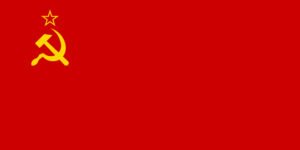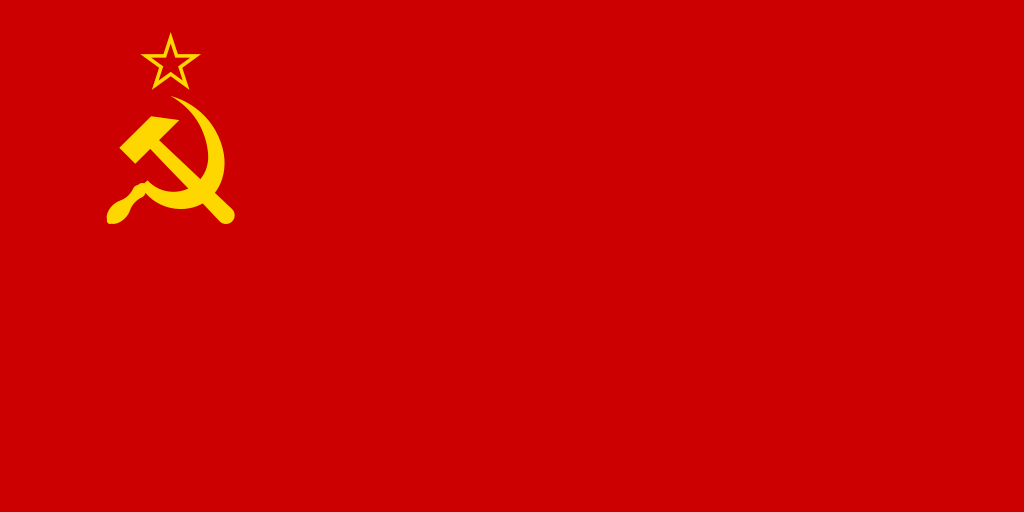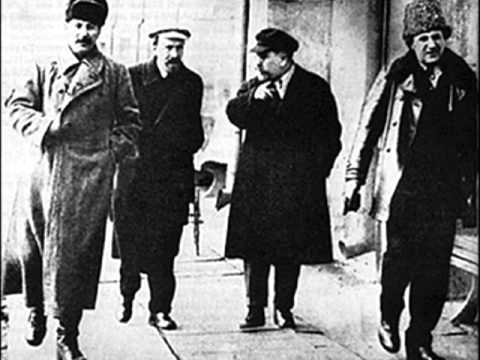

By Perry Willis
IMAGINE… No Bolshevik revolution. No Soviet Union. No mass murders by Stalin. No Red China. No mass murders by Mao. No North Korea. No communist North Vietnam. No Vietnam War. No Cambodian killing fields. No communist Eastern Europe. No communist Cuba. No Cuban missile crisis. No Cold War. It was all possible. This article will show you the way.
How the Zero Aggression Principle could have prevented the rise of the Soviet Union
I want to persuade you that the military should be funded through voluntary donations, not taxes. The Zero Aggression Principle requires this, because taxes are acts of aggression. Taxes require peaceful people to do things against their will. This is immoral and should not be permitted, let alone encouraged. That’s the moral argument for voluntary funding, but there are practical considerations too…
- Voluntary funding would give us a consumer-controlled military.
- Citizens could increase funding for wars they like, and decrease it for wars they oppose.
- The politicians would have to mold their foreign policy to fit public desires, rather than impose crusades on us against our will.
- The military would also have to be more efficient and effective in order to gain and retain public support.
All of this may sound good to you, but a big question remains. Could voluntary funding provide enough money to make us secure? I think the amount of defending we need should be defined by the citizens themselves – by what they are willing to pay for – instead of by the politicians and their clients in the Military-Industrial complex. But there is another way to evaluate this issue. We can ask ourselves…
How much good has military spending done in the past?
If military spending has been very helpful, then we may need a lot of it. But if military spending has mostly been harmful, then the budgetary need shrinks considerably. I’ve been writing a series of articles to evaluate this question. These articles review past U.S. wars and interventions. The first three articles in the series covered these topics…
- Were early U.S. wars good or bad?
- Did Teddy Roosevelt co-found the Japanese empire?
- Did U.S. politicians choose the more evil side in World War 1?
Now comes…
Did U.S. intervention in World War One help create the Soviet Union?
 The answer is yes. To understand why, you must appreciate something most people don’t understand…
The answer is yes. To understand why, you must appreciate something most people don’t understand…
There were TWO Russian revolutions, NOT just one!
- The first revolution began in February 1917. It was largely benign and had democratic tendencies. Alexander Kerensky was its primary leader.
- The second one began roughly eight months later in November 1917. This revolution created the Soviet Union. It was led by Vladimir Lenin and his Bolshevik (later Communist) Party.
Both revolutions happened because of World War One.
- The Kerensky revolution deposed the Czar because the war was going badly.
- The Bolshevik revolution succeeded because the Kerensky government continued the war past the point where the people supported it. Only the Bolsheviks were proposing peace, so they triumphed.
This view of what happened is uncontroversial. Kerensky himself thought that continuing the war was the crucial mistake. He said as much during an interview with British newspaper publisher Lord Beaverbrook…
Beaverbrook: What would have happened if you had made peace with Germany?
Kerensky: Of course we’d be in Moscow now (not in exile).
In other words, there would’ve been no Soviet Union if Kerensky had made peace with Germany (see page 316 of Comrades by Brian Moynahan). Historians like Edward Crankshaw agree. He wrote in the “The Atlantic” (October, 1954)…
“The Provisional (Kerensky) Government, if it had immediately sued for peace with Germany…could have remained in power, leading Russia into some kind of democratic system. But because it held to the war…because it knew it would depend in future on the favors of the Entente (Britain, France, and the U.S.)…it could not begin to alleviate the misery of the people, greatly aggravated by the war. It was this misery which Lenin deliberately set himself out to exploit.”
So what role did U.S. politicians play in these matters?
U.S. intervention extended World War One, providing time for the Bolshevik revolution to happen.
Remember the points made in my previous article…
- Nearly 1,000 days passed between the start of World War One and U.S.entry on April 6, 1917
- Neither side had gained any advantage. “Breakthroughs” were measured in yards or miles, and quickly reversed
- Between April 16 and June 1917 nearly half the French army mutinied
- Similar mutinies were happening on the Russian front in 1917
The war was clearly winding down. It appeared likely to end in a draw. So why didn’t it end? What gave The Great War nearly two more years of life, providing time for Lenin to create the Soviet Union? The answer is chilling…
U.S. intervention made new dreams of victory possible for Britain, France, and Russia, fueled by U.S. dollars and American lives.
But Germany had a reaction too. Germany sent Lenin to Russia in a sealed train a mere ten days after the U.S. declaration of war. Consider the logic…
- The Germans had just gained the United States as a new enemy.
- Perhaps they could compensate by undermining or even losing an old enemy — Russia.
- Lenin pledged to take Russia out of the war, so the Germans gave him money and sent him back for that purpose.
The Germans probably would have done this anyway. It made strategic sense given the Russian revolution that had begun in February. But it became even more urgent after the U.S. entered the war. There are obvious connections between…
- The U.S. entry into the war
- The German use of Lenin as a tool
- Kerensky’s continuation of the war
- The ultimate triumph of the Bolshevik revolution
Please recall what Edward Crankshaw said in the quote above…
- The Kerensky government continued the war because it expected future support from its allies, including its wealthy new friend, the United States of America.
- Lenin exploited the war to gain power.
But U.S. politicians aided the formation of the Soviet Union in one other way. Recall that…
Britain and France were dependent on U.S. supplies and money to continue fighting. U.S. politicians could have stopped the war simply by prohibiting trade and loans for Britain and France. Which is worse? Ending trade that was enabling the commission of a crime, or sending innocent young Americans to die by participating directly in that crime?
U.S. politicians chose the worst option.
It’s a simple fact — U.S. politicians could have forced a peace settlement long before the Germans sent Lenin back to Russia. Think of the consequences! Think how much better the world would have been had the Soviet Union never been born. That likely would have meant…
- No mass murders by Stalin
- No Red China and no mass murders by Mao
- No North Korea
- No communist North Vietnam or Vietnam War
- No Cambodian killing fields
- No communist Eastern Europe
- No communist Cuba
- No Cuban missile crisis
- No Cold War
Hundreds of millions of lives might have been saved, and untold poverty and misery might have been avoided, if only the U.S. had not intervened in World War One. Alas, the harm caused by that intervention does not end there. In my next two articles, I’ll examine how U.S. politicians helped foster the rise of radical Islam and give birth to Nazi Germany.
Please remember the key points I am trying to demonstrate with these articles…
- Most U.S. wars have made the world a worse place, and Americans less free and secure.
- Our “patriotic holidays” should honor soldiers without mischaracterizing U.S. wars.
- The claim that U.S. soldiers “defended freedom” is sweet-sounding but false.
- We must deny politicians the ability to wage aggressive war. I think we can best achieve this by making military funding voluntary.
Please also remember this — I’m NOT blaming America for anything, but I am blaming U.S. politicians (and foreign politicians too) for lots of things.
If you find these articles valuable…
- Please share them with others.
- Use these articles to start a discussion about the Zero Aggression Principle and consumer-controlled governance
- Discuss the correct way to honor veterans and the war dead given the sad reality of past U.S. wars. We believe it should be possible to honor their courage and mourn their loss, without telling lies about how the political class misused them.
If you’re new to our work and you like what you see, please subscribe. It’s free!
Perry Willis
Co-creator, Zero Aggression Project
P.S. Previous articles in this series include…
- Were early U.S. wars good or bad? (covering the War of 1812, the Mexican War, the Spanish-American War, and the conquest of the Philippines)
- Did Teddy Roosevelt co-found the Japanese empire? (Covering TR’s betrayal of Korea)
- Did U.S. politicians support the more evil side in World One?
Future articles include…
- How U.S. politicians helped create the Soviet Union
- Did U.S. policies foster the rise of radical Islam?
- Was Adolf Hitler Woodrow Wilson’s love child?
- Was World War Two a good war?
- What if World War Two had been voluntarily funded?
- The Cuban Missile Crisis was a fraud
PS: Here’s a list of books I’ve consulted in this series.
The Russian Revolution
- Comrades by Brian Moynahan
- Russia Leaves the War by George F. Kennan
World War One
- The Illusion of Victory by Thomas Fleming
- World War I by Richard Maybury
- The Pity of War by Niall Ferguson
- The Forgotten Depression by James Grant
The Spanish-American War, the conquest of the Philippines, and Teddy Roosevelt’s betrayal of Korea…
- Bully Boy by Jim Powell
- The Politics of War by Walter Karp
- The War Lovers by Evan Thomas
- Honor in the Dust by Gregg Jones
- The Imperial Cruise by James Bradley
The Mexican War
- A Wicked War by Amy S. Greenberg


I enjoy reading Perry’s understanding and writing about this history, and I agree with him for the most part, however I have also read the writings of several other Authors on these subjects in history, and I keep recalling the plagiarist words of Churchill when he said “The History is written by the Victors”, and although Churchill was just repeating what someone else had said, he was right, and I might add the concatenation to that phrase, “and they do this to justify their morality”. I would highly recommend that Perry and many others get a copy of “The Bad War” by Mike King. whether one agrees or disagrees with Mike’s writings, I know that he spent a long time, and did much research in gathering information for his book, and he has documented through out his book with photocopies of letters of the times, newspapers, and pictures! The “Bad War” is a real eyeopener into who has been behind all of these wars, and how it was done, and how they brainwashed the American public into backing them!
The US does not need a standing army. No one is in a position to invade us, and if they wanted to try, well here’s what we need to stop them. An air force and a navy. But should some military make it past them, we need our citizens trained in guerrilla warfare. Starting at 14 years old, all young Americans should have the opportunity to earn some money spending 6 weeks every summer until they are 20 training to stop an invading military. Voluntary of course. If insufficient numbers volunteer, raise the pay!
That would stop all this adventurism that the war mongers love.
Well done, but human misery has rolled on for 10,000 years and will roll on forever unless money becomes private!